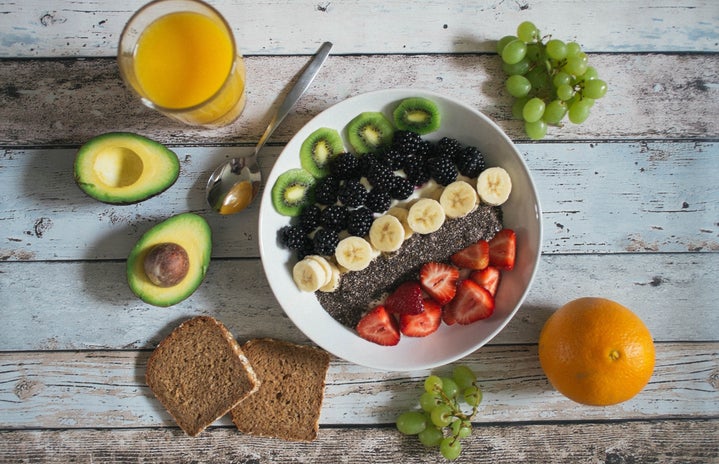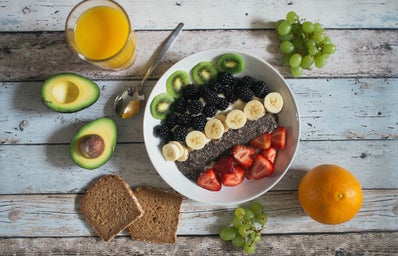Every cook should have a standard roster of food items and spices. I’ve compiled a list of the most basic essentials for every kitchen. I recommend all of these because, from these, you can cook almost every type of dish. I did not include produce or meat on this list because those only last a certain amount of time and although they are basic goods that should be in kitchens, they are not necessary.
SPICES:
Salt: I don’t think I need to say too much about this spice considering that it is probably the most common spice used in kitchens. The most essential of spices.
Pepper: There are a lot of varieties of pepper, so I am just focusing on black peppercorn. I like to freshly grind the pepper, though there are many options for pre-ground.
Garlic Salt/Powder: Garlic Salt and Garlic Powder are two very different things. The powder is just straight up powdered garlic and garlic salt has salt mixed in with the garlic bits. If you use garlic salt, be aware of the sodium content of the food you are preparing. This goes for Onion Powder v. Salt as well.
Oregano: This spice is used frequently in Spanish, Italian, and Greek food and is a staple in the kitchen.
Basil: I use this spice on a near daily basis to add an almost tomato feel to my food. An essential for those who really like Italian food.
Vanilla Extract: Pure is good if you can get it, but it definitely more pricey than imitation. As far as I know, there is no real difference.
I would also recommend some kind of chili powder or red pepper flakes. There are too many varieties for me to recommend a specific variety, but stick to your gut.
FOOD ITEMS:
Flour: This is probably the most obvious one on this list, but still needs to be mentioned because it is the base of so many amazing things. Flour is the perfect base for sauces, stews, and of course in, baking.
Sugar: I use sugar more than any other typical baking good that I have on this list. I plow through the sugar like crazy and find myself needing to buy it very frequently.
Baking Soda: Not only is this a good thing to have for baking, but it also is excellent for fire safety! When you deal with grease fires, it is unwise to use flour to smother the flames because the flour will ignite and cause even more of a problem.
Rice/Pasta/Beans: All of these last an extremely long time and all can be cooked very easily. They also are pretty cheap to keep around and can be used in numerous recipes.
Olive Oil, Vegetable Oil, and Butter: All three of these are good to keep on hand. Each of these has a different effect on the food you use them on and how the flavor ends up turning out. Also, some oils are better for frying than others and certain meats react better to other oils. Make sure to verify that the olive oil is from a reputable brand that has been tested for 100% olive oil content.


